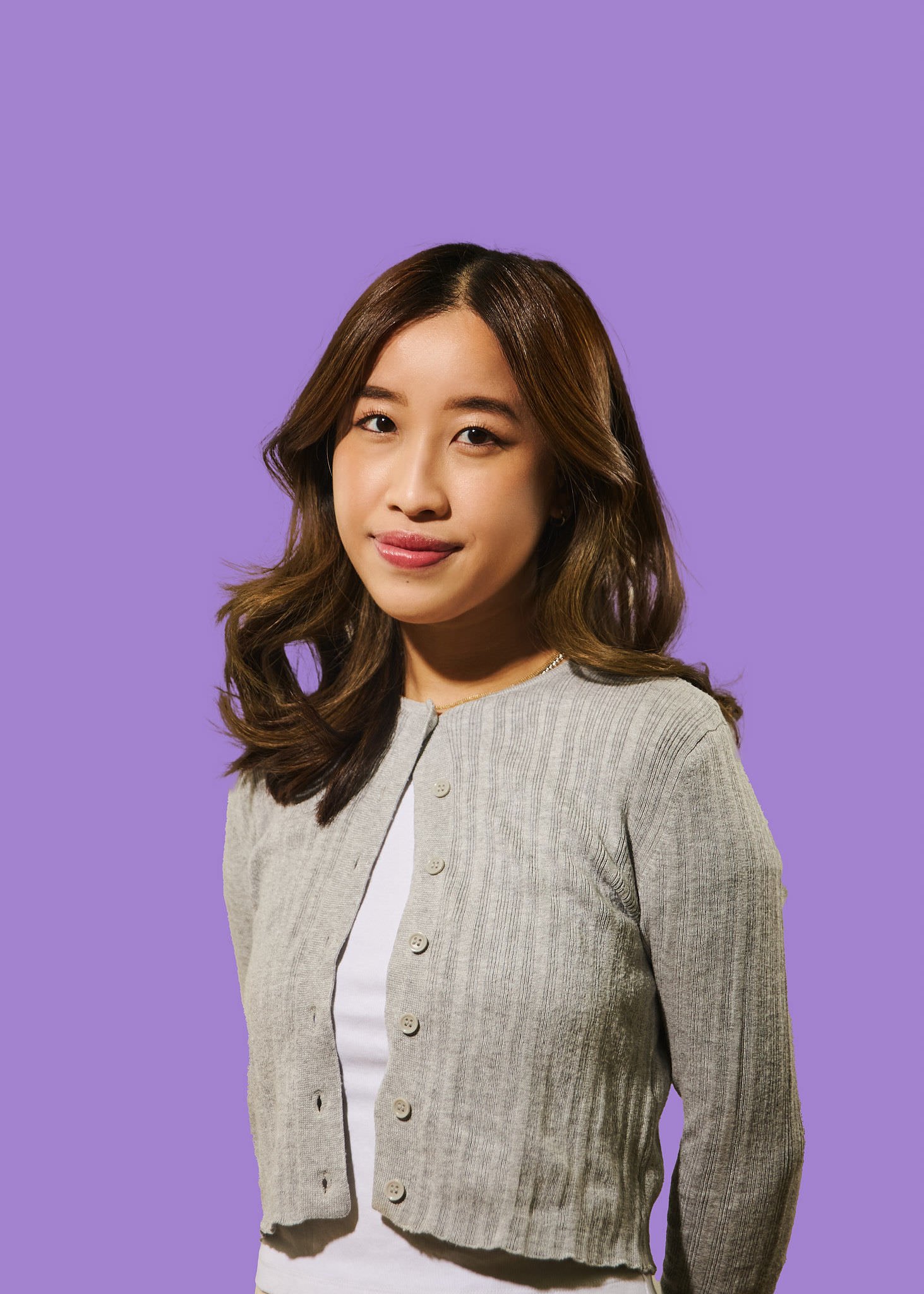
Joyce Ho
Therapist
(she/her)
I am a licensed social worker with a unique experience with queer folks, people of color, and the many intersections in between. I am drawn to working with younger adults and adolescents, but welcome clients across the lifespan.
My approach centers client goals and needs through the construction of a trusting therapeutic relationship that recognizes innate strengths and current supports. I have a clinical background in working with anxiety, depression, life transitions, and questions about self identity. We inevitably weave our systemic oppressions and unresolved questions about self in our clinical presentations. Unraveling how we experience our gender, sexuality, race, and abilities will come naturally in holistic client care. My practice is neurodiversity-affirming, antiracist, feminist, and queer-inclusive to accommodate for the discomfort that this confrontation may bring.
As a queer Chinese-American individual (clinician, daughter, sister, friend, partner, etc) having navigated these treacherous conditions of intersectionality myself, it is my goal to work alongside clients in their current experiences for self determination and empowerment in their identities.
Questions? joyce@forrealtherapy.com
INTERVIEW BIO WITH Joyce Ho
How do you see queerness in your space and life?
Queerness has always been a part of my life, it was just a matter of how much I was paying attention to it… or trying not to pay attention to it. One day, you realize that you might’ve been fighting yourself in your head, along with other voices telling you what is not acceptable. Growing up religious kept my world pretty small; my adolescence and young adulthood has largely involved questioning and exploring a new sociocultural world and identity. I realized I saw myself — and my inherent queerness — more clearly the more I did so.
What is it like to grow up in Ann Arbor, Michigan?
It was common to call Ann Arbor a “bubble.” As someone who was largely optimistic (I still consider myself so), I mostly saw the city through rose-colored glasses. When I would experience microaggression or macroaggressions, I would consider myself a flawed exception. Thus, the reality of this “bubble” is that it isolates the community from each other. It tells individuals with less privilege that they are anomalies; their problems must be internal and individual. How deceptive! While I hope and believe things are more open now, I certainly remember the challenge of convincing myself and others that maybe there was real systemic discrimination at play that was preventing us from communal healing. Allowing myself to experience anger and injustice also allowed me to connect and heal.
If you could go back in time as a therapist, how would you work with Joyce?
I would focus on what I can truly control and who I am doing it for. What are my goals, and what values drive these goals? We have social constructs for what our life should look like in every role, identity, and age. As an adolescent, the social construction that mattered the most were the peers around me. As a clinician, I would be curious if I even felt seen– asking myself to define things like friendship, family, care, and harm. I would center my adolescent self and desires to help contrast the social construction of conformity that often came at the expense of myself. Adult Joyce tries not to harbor resentment at my past self for doing the best I could at that time.
What would be your ideal client?
I resonate strongly with clients who are immigrants or children of immigrants. I find it helpful to explore how cultural norms have informed self identity, relationships, and values. How can we center identities that society has not wanted to center? How has that impacted the way you might even want to interact with it? I like to draw attention to the multifaceted factors in our behaviors and emotional responses– whether we’re exploring these presentations over a timeline (when has this happened before?), over numerous relationships (who else in your life has been involved in the creation or maintenance of these safety behaviors?), and “versions” of self (how have you seen yourself responding differently based on your needs?).
I feel like something unique about a younger therapist is being in touch with what is happening culturally. Let’s talk about how this random Netflix show describes the grief process! Let's talk about the implications of monogamy from this new movie! Let’s talk about our song of the week and how it could describe how we’re feeling. I find a lot of fun and utility in applying media to client’s lives for potential parallels to better understand the client’s emotional and behavioral response.
How would you work with someone going through a big life transition, and moving from another place?
Therapy can operate as an anchor when you are going through a transitional period. When things don’t feel certain, having a safe base to explore what is scary or joyful is important. How clients interpret and internalize the impacts of a transitional period is directly impacted by their past experiences. I would be curious about those looking to explore their cultural background whilst going through life transition. With so many things in a fluid state, why don’t we go backwards and discover how our past selves were supported. How do we hold space for all of our identities?
Everything we are made up of now is made up of our past selves. I think there is always something to walk back to and discover.
What is your universal piece of advice?
A music artist I enjoy tweeted this a long time ago, and it sticks with me still: “I used to rebel by destroying myself, but I realized that’s awfully convenient to the world. For some of us, our best revolt is self-preservation.” I think that in a world that is not built for certain people to succeed, the biggest “screw you” you can do is lean into a life well lived.
